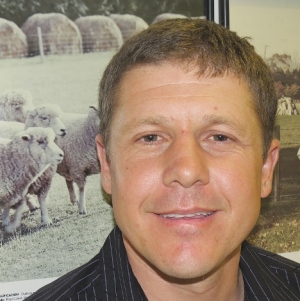“I fully expect we’ll see a high challenge October through to December,” Greg Mirams of Techion Group told Rural News.
Already faecal egg counts are “popping” due to the impact of the autumn drought then June storm, which lowered ewes’ natural resistance, and growthy conditions since, he says.
Consequently, heavily pregnant ewes need monitoring to check they’re not succumbing to the current challenge.
Even if ewes are coping, they will likely be shedding eggs which on pasture strip-grazed at high stocking rates will be leaving a problem for later in the spring, he adds.
“The contamination is monumental and if or when lambs are grazed on that country they’re going to be sucking those larvae in.”
As for which drench to use, Mirams says the emergence of resistance to Zolvix on three goat farms is “concerning” and underlines the importance of following best practice guidelines with parasite management: quarantine drenching stock coming onto the farm, and using an effective, best for purpose, product thereafter.
“The industry has tended to have a shotgun approach, knowing they’ll get a hit somewhere, but we need to get a lot smarter with which drenches we use for what, more like rifle shooting.”
For example, in grazing calves cooperia is most likely to cause problems so levamisole or albendazole should be used, rather than ivermectin or abermectin.
Conversely, in lambs, using “Bz” drenches is less advisable as resistance is widespread. It all comes down to knowing what works on what, and on your farm.
“The more information you’ve got, the smarter decisions you can make.
“There will be lots of noise from the scientists about this resistance and what’s going on, but from the farmer’s point of view you need to know what’s happening on your farm and see what you can do to manage it.”
That’s echoed by Massey’s Paul Kenyon who’s been involved in researching the Zolvix resistance cases, albeit as a specialist in sheep production rather than parasitology.
“If you use a product that’s not 100% effective you’re going to get depressed performance… that will come off the bottom-line [profit], no question. If ewes lose condition because of a worm burden it can affect reproduction and in lambs, if it is bad enough, lambs can lose weight, rather than gain it, and in extreme cases can die.”

















